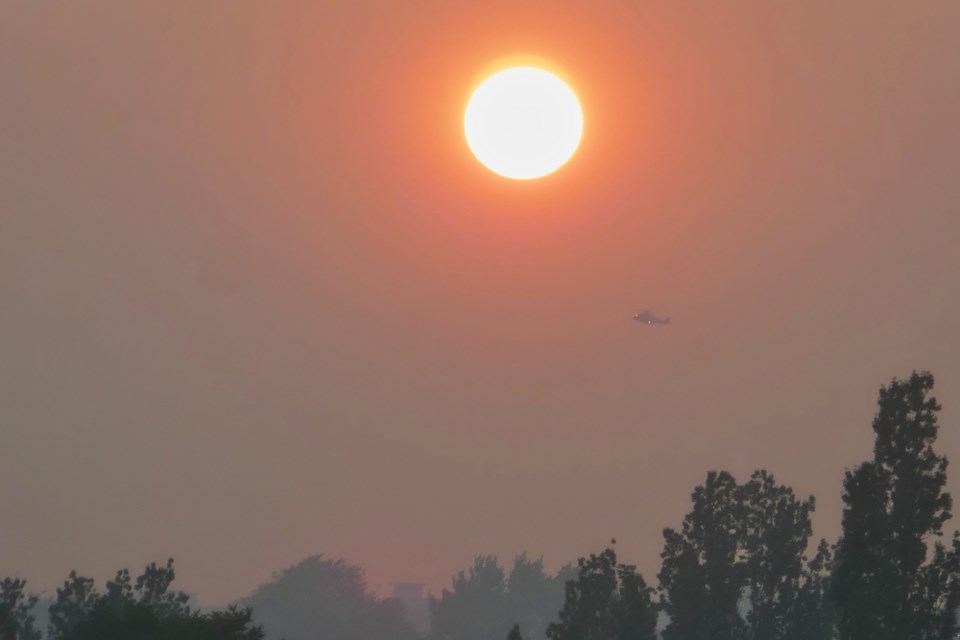If you woke up with a sore throat or a cough this morning in Metro Vancouver, you're not alone.
The region remains under an air quality advisory, thanks to high concentrations of fine particulate matter stemming from wildfires near Manning Park, in Hope and in Washington state.
Exposure to smoky air is a particular concern for people with underlying conditions such as lung and heart disease, chronic obstructive pulmonary disease, asthma and/or diabetes, as well as those who are pregnant or those with respiratory infections. Infants, children and older adults can also be more affected by the air, as can outdoor workers and those who are unhoused.
Fraser Health offers up some health tips to protect yourself during wildfire events and general air quality advisories.
How to protect your health from wildfire smoke
-
Know your risk. If you're at elevated risk, try to stay in air conditioned spaces, or facilities with cooler, filtered air such as an arena or public library.
-
Use common sense regarding outdoor physical activity – if your breathing becomes difficult or uncomfortable, stop or reduce the activity.
-
Reduce indoor pollution sources by not smoking or burning materials.
-
Use commercially available high-efficiency particulate air (HEPA) filters, which can improve indoor air quality near the device. If you do not have access to these, seek out community spaces with cool air, such as libraries, community centres or shopping malls.
-
Activate your asthma or personal care plan if you have asthma or other chronic illnesses. If you do not have an asthma or personal care plan for air quality events, talk to your care provider.
-
Know where to find information. The air quality impacts of wildfire smoke can change fast. Know how to stay updated on conditions in your area. Smartphone apps such as the Air Quality Health Index (AQHI) in Canada can send alerts when air quality starts to deteriorate.
-
Stay cool and drink plenty of fluids.
-
Pay attention to local air quality reports. Air quality may be poor even though smoke may not be visible.
-
Reduce outdoor pollution sources by taking transit, carpooling and minimizing the use of diesel-powered equipment.
-
Start preparing for next season now. The best way to protect yourself from smoke is to plan well before the smoke arrives.
– source: Metro Vancouver and Fraser Health




